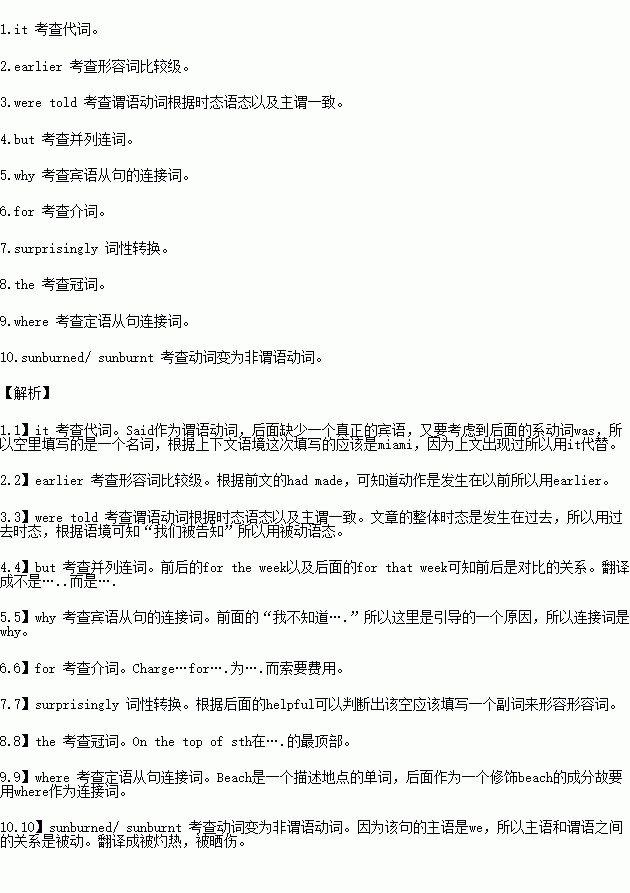题目内容
Last year, my brother and I went to Miami for a vacation. Some of my friends who had been there before said1._____ was a wonderful holiday destination. Before we went, we had planned for months. When the day came, we were ready.
After our plane landed, we went to the hotel. We had made our reservation six months__2.____ (early), but the man at the front desk said there had been a mistake. We __3.___(tell)that our rooms hadn’t been reserved for that week, __4._ for the week after. I didn’t understand _5._ this would happen and my credit card had already been charged____6.__ the reservation. What’s worse, the hotel had been fully booked. When we were wondering what to do, the manager came out. She was _7.___(surprise)helpful. She apologized for the mistake and gave us a spare VIP room on __8.___ top floor. We had never stayed in such an amazing room, and we weren’t charged extra.
The next day, my brother and I went to the beach __9._ we watched some people play volleyball. We got a little___10._(sunburn),but the day had been so relaxing that we didn’t mind.

